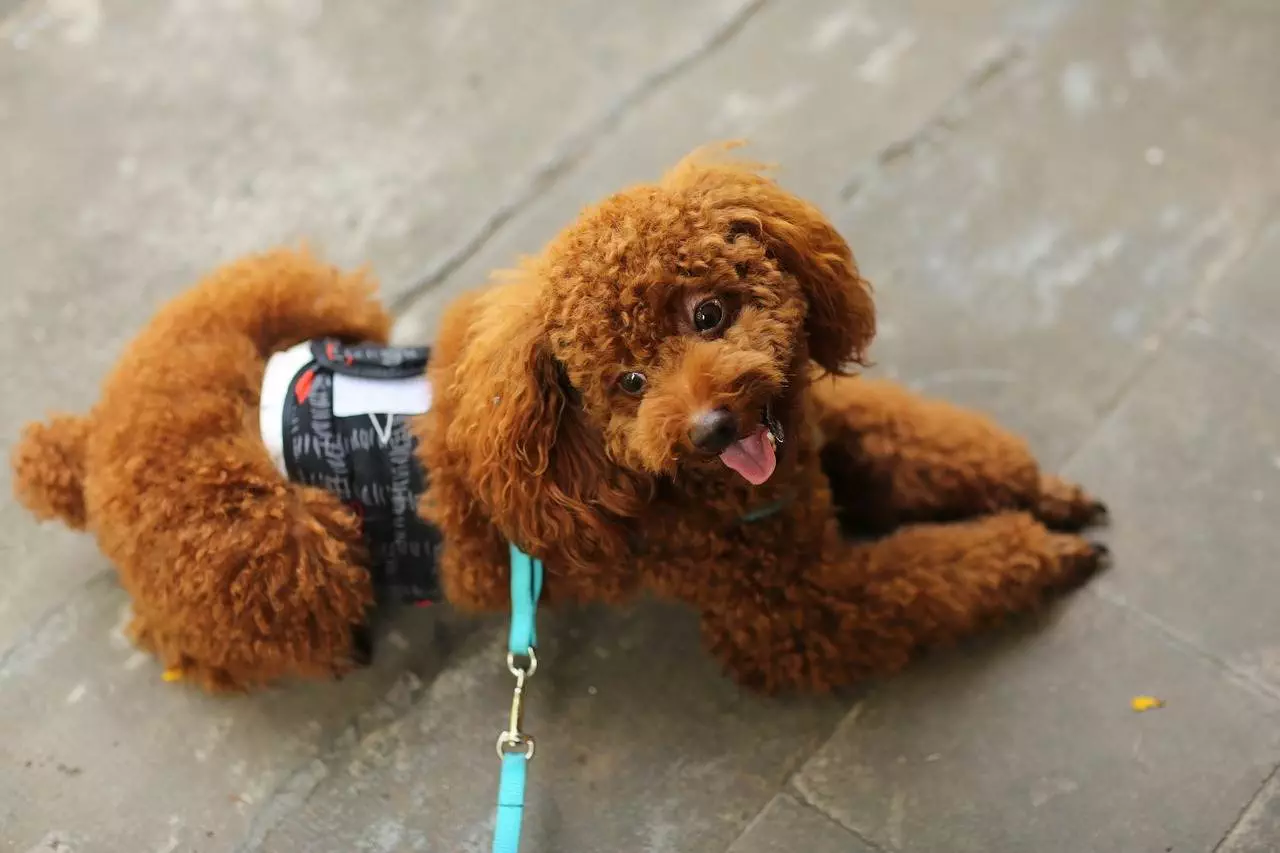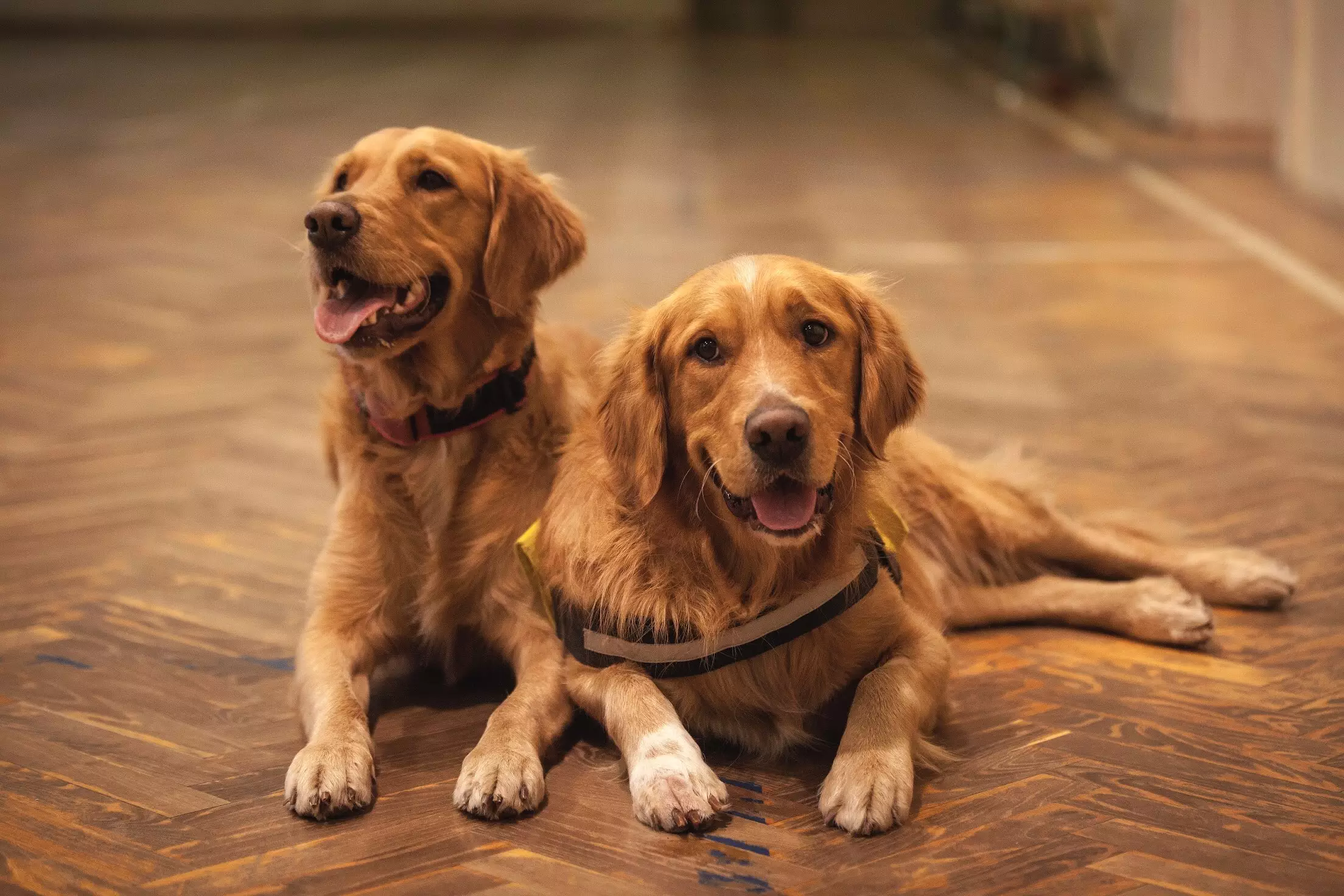Discover the ideal weight for a toy poodle and learn how to keep tabs on their health. Understand the toy poodle’s growth pattern, weight gain and how to maintain a healthy weight.
Embarking on a journey with a pet is like welcoming a new addition to the family. Understanding every attribute is vital, especially when it concerns their health and wellbeing. This piece will uncover the answer to a crucial question, “How much does a toy poodle weigh?” Getting familiar with their weight will help you keep tabs on your furry friend’s health, ensuring they stay at their peak. So, brace yourself as we reveal all you need to know about your toy poodle’s ideal weight.

Understanding the Toy Poodle Breed
Welcome to the world of Toy Poodles! This charming breed is well-known for its elegance, intelligence, and playful spirit. With their curly coats and fascinating history, Toy Poodles make for wonderful companions. Let’s delve into understanding this lovely breed a bit more and explore their inherent characteristics.
General Characteristics of the Toy Poodle
Toy Poodles are more than their enchanting looks; they have an equally captivating personality as well. They are known for their engaging and lively nature. They’re true comedians at heart, always ready to entertain their family with their playful antics. Toy Poodles are also remarkably intelligent, easily picking up on commands and tricks. Their curiosity and keenness to please make training a rewarding experience both for you and your Toy Poodle.
Historical Background of the Toy Poodle
Originating from Germany as a type of water dog, the Poodle’s job was to retrieve waterfowl for hunters. The Toy Poodle, however, has a history deeply rooted in French nobility where they were bred down from their larger counterparts to serve as companions for the nobles and royals. Their small size makes them perfect lap dogs, but remember, they retain the same high energy and intelligent nature of their larger Poodle family members.
The Toy Poodle Size Categories
Poodles come in three size varieties – Standard, Miniature, and Toy, each category holding its allure. But how do we differentiate them, particularly knowing a Toy Poodle from the rest?
Differentiating from Standard and Miniature Poodles
The most obvious difference among the three categories is the size. Toy Poodles are the smallest of the lot, typically standing under 10 inches tall at the shoulder. Standard Poodles, on the other hand, stand over 15 inches tall, with some reaching up to 22 inches. Miniature Poodles fall in between at 10 to 15 inches in height.
Recognizing a Toy Poodle from other Poodle Types
Apart from size, Toy Poodles share the same physical characteristics as the Standard and Miniature versions. They all sport a beautifully curly or corded coat and an intelligent look coupled with a proud, charming demeanor. However, their small stature often gives Toy Poodles a more delicate or ‘toy-like’ appearance, hence the name.

Typical Weight Range of Toy Poodles
Understanding the weight of Toy Poodles is crucial when ensuring their healthy development.
Ideal Weight for a Fully Grown Toy Poodle
When fully grown, the Toy Poodle typically weighs between six to nine pounds. However, some can tip the scale slightly above or below this range. It’s essential to remember that weight can vary based on factors such as genes, diet, and exercise routines.
Factors That Can Influence Weight
Genetics play a huge role in a Toy Poodle’s weight. The puppy’s parents’ size often gives a good indication of how large the puppy will grow. Further, diet and exercise greatly influence a Toy Poodle’s weight. Overfeeding coupled with inadequate exercise can easily lead to obesity, while underfeeding and overexertion can result in a malnourished dog.
Growth Pattern & Weight Gain of a Toy Poodle
Understanding your Toy Poodle’s growth pattern and weight gain is essential to track their health and development.
Understanding Toy Poodle Puppy Growth Phases
Like most dogs, Toy Poodles go through several growth phases from puppyhood to adulthood. The first few months are their most rapid growth period, where they’ll gain weight swiftly. By four to six months, they’ll have reached approximately half of their adult size. Toy Poodles usually reach their adult weight and height between 9 to 12 months of age.
Tracking Weight Gain from Puppyhood to Adulthood
Tracking your Toy Poodle’s weight gain is an essential part of their care regime. Regular weight checks will let you know if there are any sudden changes in their weight, indicating potential health issues. Plus, it ensures they are progressing at a healthy growth rate.
Factors Affecting Growth and Weight Gain
The pace of your Toy Poodle’s growth and weight gain depends on multiple factors, including genetics, diet, and exercise routine. However, medical conditions such as worms or other parasites can affect their growth as well. Therefore, regular vet check-ups are crucial during their growth period.
How to Maintain Healthy Weight in Toy Poodles
Maintaining a healthy weight isn’t just about feeding and exercise; it includes a broader range of care.
Ideal Diet for Toy Poodles
The dietary needs of Toy Poodles are unique because of their small size and energetic nature. High-quality dog food formulated for small sizes and corresponding life stages (puppy, adult, and senior) is usually the best way to maintain a balanced diet.
Exercise Requirements for Toy Poodles
Despite their small size, Toy Poodles are highly energetic and require daily exercise. Regular walks, short runs, and playtime can help them burn the necessary calories and maintain an ideal weight.
Importance of Regular Vet Check-ups
Regular vet check-ups are crucial for maintaining your Toy Poodle’s weight and overall health. Your vet can provide personalized advice and prevent potential health issues that can lead to abnormal weight gain or loss.
Health Concerns Related to Weight in Toy Poodles
Keeping your Toy Poodle’s weight in check is key to preventing various health issues.
Common Health Issues in Overweight Toy Poodles
Obesity in Toy Poodles can lead to health concerns such as diabetes, heart disease, arthritis, and decreased lifespan. Overweight Toy Poodles may also experience difficulties in breathing, diminished stamina, and other discomforts.
Health Risks for Underweight Toy Poodles
Like overweight, an underweight Toy Poodle is also prone to health risks. These include a weakened immune system, brittle bones, gastrointestinal issues, and more. Keep an eye out for any unusual thinness or fat loss in your Toy Poodle.
Recognizing Overweight or Underweight Toy Poodles
Part of caring for your Toy Poodle is also recognizing when they’re overweight or underweight.
Visual Signs of Overweight or Underweight Toy Poodles
An overweight Toy Poodle may have a rounded body, and you might have difficulty feeling its ribs because of the excess fat. On the other hand, in underweight Toy Poodles, the ribs might be distinctly visible without any fat covering, and the body might appear thinner than usual.
Behavioral Signs of Weight Issues
Changes in behavior can also indicate weight issues. Lack of energy, difficulty moving, shortness of breath, or eating more or less than usual could indicate that your Toy Poodle is either overweight or underweight.
How to Address Weight Concerns in Toy Poodles
Taking action at the right time can save your Toy Poodle from health complications.
When to Consult a Vet for Weight Issues
Spot a sudden weight gain or loss? Or noticed a change in their eating habits? It would be best if you immediately consulted your vet. They can perform a detailed health assessment and prescribe an appropriate treatment or management plan.
Diet Adjustments for Weight Management
Sometimes, addressing weight concerns may be as simple as modifying your Toy Poodle’s diet. This could involve reducing or increasing food portions or switching to a different type of dog food.
Increasing Physical Activity for Weight Loss
Apart from diet, increasing physical activity is another crucial area for weight management. It’s especially vital for overweight Poodles. Make sure you integrate a workout routine that suits your dog’s age and physical capabilities.
Keeping Toy Poodles Healthy Beyond Weight
While weight is a significant indicator of health, there are several other aspects to consider while keeping your Toy Poodle healthy.
Routine Health Checks for Toy Poodles
Routine health checks can help identify potential health problems early. Frequent vet visits and necessary vaccinations can provide a conducive environment for your Toy Poodle to grow and thrive healthily.
Identifying Non-Weight Related Health Concerns
Certain health issues might not directly correlate with weight. Toy Poodles are prone to certain breed-specific health conditions such as PRA (Progressive Retinal Atrophy), Addison’s disease, and hip dysplasia. Any unusual symptoms should warrant a trip to the vet.
Busting Myths About Toy Poodle Weight
As much as there is factual information about Toy Poodle weight, myths abound as well. Let’s demystify some of these misconceptions.
Common Misconceptions About Toy Poodle Weight
One common myth is that Toy Poodles don’t need much food because of their small size. However, due to their energetic nature, Toy Poodles require a well-balanced diet in the right proportions.
It’s also often thought that these little dogs don’t need much exercise. The fact is, Toy Poodles, like all Poodles, are active dogs and need regular physical activity to stay fit and healthy.
Clarifying Facts for Responsible Toy Poodle Ownership
As a potential or current Toy Poodle parent, you should understand these misconceptions to provide the best care for your furry friend. Always give your little buddy the right amount of nutritious food, keep them active, and schedule regular vet visits. With careful monitoring and the correct care, your Toy Poodle can maintain a healthy weight and live a happy, fulfilling life.





